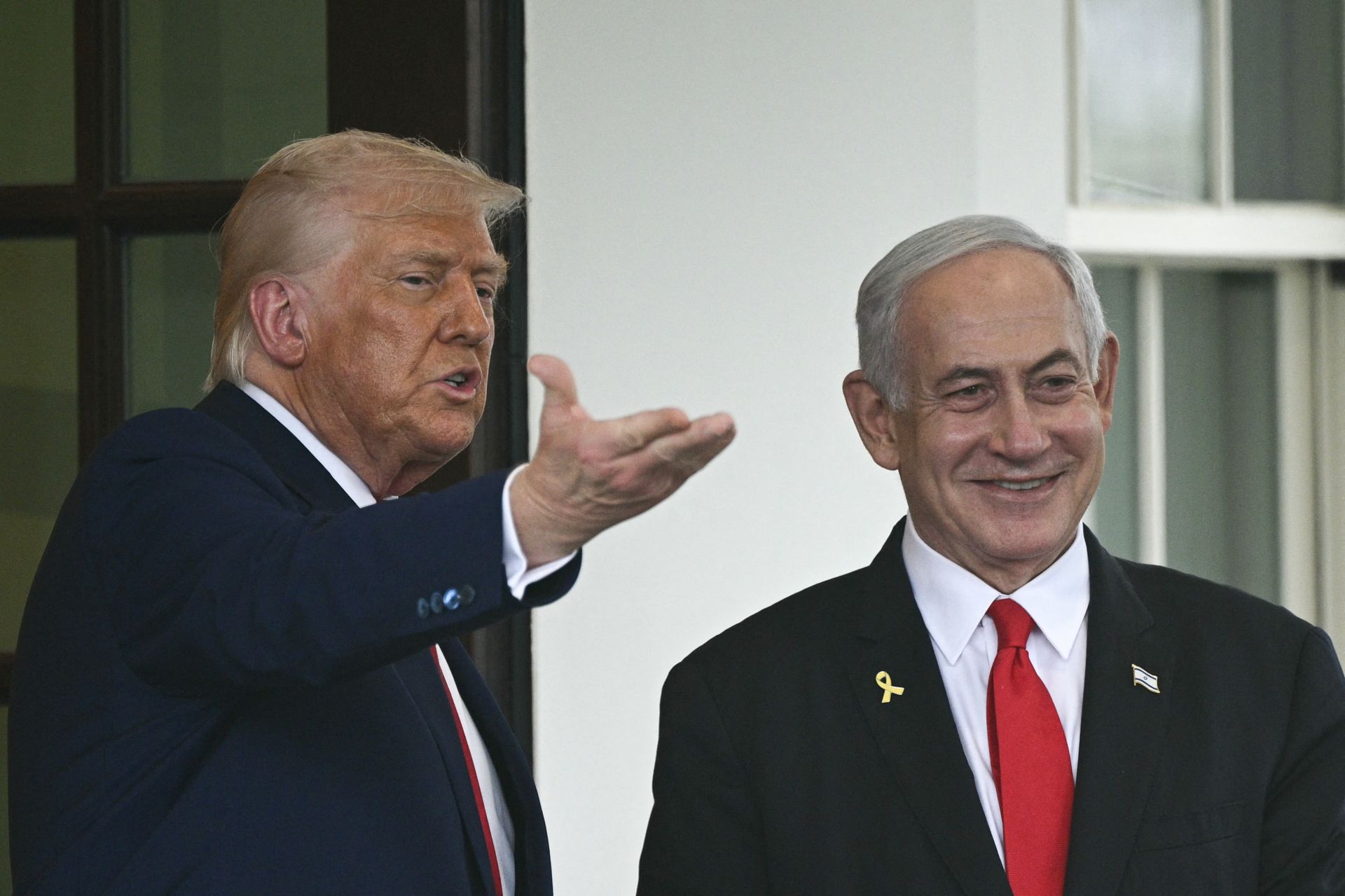- Home
- Middle East
- Trump Redraws US Diplomacy Without Israel

US President Donald Trump (L) and Israeli Prime Minister Benjamin Netanyahu. ©Brendan Smialowsi / AFP
US President Donald Trump's decision to skip over Israel in his Middle East tour was just the latest sign of a shifting dynamic between the historic allies.
From nuclear talks with Iran to a ceasefire deal in Yemen and the announcement of lifting sanctions on Syria, Trump has pressed ahead solo with Middle East diplomacy in recent weeks, seemingly sidelining his country's long-time regional partner.
The United States on Monday secured the release of American-Israeli hostage Edan Alexander from Gaza after engaging directly with Hamas.
Meanwhile, Israeli Prime Minister Benjamin Netanyahu has faced mounting domestic criticism over his failure to bring home 57 hostages held in the Palestinian territory since October 7, 2023.
Despite both sides continuing to publicly describe their relationship as excellent, one widely read right-leaning Israeli paper has reported mutual frustrations behind the scenes.
The apparent realignment comes as Trump claims to be moving closer to an agreement with Iran on its nuclear program, contrary to the Israeli position.
"From its perspective, Israel appears to be sidelined in these talks," said Eldad Shavit, a foreign policy expert at the Institute for National Security Studies (INSS) in Tel Aviv.
"American conduct so far indicates a more conciliatory approach," Shavit added, contrasting with Israel's demands for the complete dismantling of Iran's nuclear infrastructure.
This divergence risks a deal being reached that "will not be an agreement that Israel will like," Shavit said.
“Transactional”
The United States in early May sealed a ceasefire with Yemen's Huthi rebels that has left Israel, a regular target of missiles launched by the Iran-backed group, out of the picture.
The deal was announced just hours after a missile fired by the rebels landed within the perimeter of Tel Aviv's international airport, leading to the cancellation of multiple flights.
In a surprise move this week, Trump also announced the lifting of sanctions on Israel's neighbor Syria – a measure sought by the country's new leader since his Islamist-led alliance toppled longtime ruler Bashar al-Assad in December.
Israel views Syria's leadership with hostility and has carried out hundreds of strikes to degrade its military capacity.
"The historic relations and affinity between Israel and the United States... mean very little" to Trump, said Yossi Mekelberg, an analyst at London-based think tank Chatham House.
"With Trump there is never a honeymoon; it's all transactional... 'I want you today; I'm your best friend; I'll drop you tomorrow.'"
Shavit, of the INSS, said Trump was skipping Israel "because he has nothing to gain there."
"He would have come if there had been a deal to release all the hostages, for example... he goes where he can gain something," such as the lucrative deals he secured in the Gulf, Shavit added.
“Free Rein” in Gaza
But the shifts do not entirely call into question the long-standing alliance between Israel and the United States.
The United States continues to support Israel's military offensive in Gaza, despite growing calls from European countries and the UN for a de-escalation of the war.
"Trump is still giving Netanyahu free rein, total arms to do what he wants," said Mairav Zonszein, an analyst from the International Crisis Group.
But, she added, the relationship is at a point where "it can go in different directions."
Shavit, a former ministerial adviser, said that in addition to securing Edan Alexander's release from Gaza, Trump "is trying to reach an agreement that will allow a ceasefire...
"I'm not sure that the Israeli government and Prime Minister Netanyahu are on the same page with Witkoff and Trump concerning the issue of the cessation of war."
Growing Isolation
On the international stage, Israel is looking increasingly isolated, with explicit criticism coming from the United Nations and European powers.
Netanyahu "needs to be very, very careful with Trump," Shavit said.
"Israel needs his support, political support, military support, economic support, everything," he added.
The prime minister suggested that Israel should eventually stop relying on US military aid, without providing an explanation.
The paper Israel Hayom has reported, without revealing its sources, that Netanyahu privately expressed frustration with some of Trump's actions in the Middle East, including his overtures to Syria and Iran.
It also said Trump was losing patience at what he considers Israeli foot-dragging, including on normalizing ties with Saudi Arabia.
Saudi Arabia, for its part, has said it will not consider inking a deal with Israel without a ceasefire in Gaza.
Chloe Rouveyrolles-Bazire / AFP
Read more



Comments